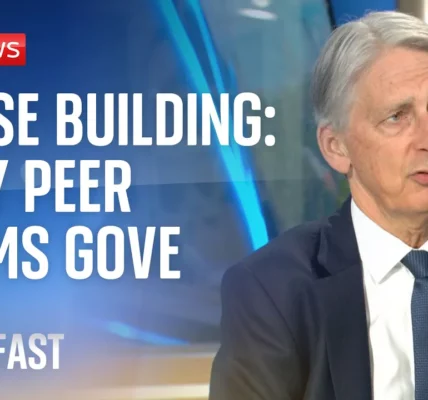The Wait for Weight Loss Drugs: Understanding Wovi and Munaro

In recent years, weight loss drugs such as Wovi and Munaro have emerged as groundbreaking treatments for obesity, promising significant weight loss and improved health. However, the accessibility of these medications on the NHS remains a pressing concern, leaving many individuals struggling with obesity in a state of uncertainty. This article delves into the intricacies of these weight loss drugs, their effectiveness, the challenges faced by patients, and the broader implications for public health.
Introduction
The rise of obesity as a global health crisis has prompted the development of various treatment options, including pharmacological interventions. Weight loss drugs like Wovi and Munaro have shown remarkable efficacy in aiding weight loss by mimicking natural hormones that regulate appetite. Despite their potential, the availability of these medications through the NHS is limited, leading to a situation where many individuals who could benefit remain untreated. This article seeks to explore the reasons behind this disparity, the experiences of those affected, and the societal implications of obesity and its treatment.
The Promise of Weight Loss Drugs
Weight loss drugs such as Wovi and Munaro are designed to assist individuals in their journey toward a healthier weight. These medications contain semaglutide, which acts on the brain to control appetite and promote a feeling of fullness.
How Do These Drugs Work?
Semaglutide mimics the action of a hormone produced in the small intestine that helps regulate blood sugar levels and appetite. By enhancing feelings of fullness, these drugs can significantly reduce caloric intake, leading to weight loss. Key benefits include:
- Reduction in overall body weight
- Improvement in metabolic health
- Decreased risk of obesity-related diseases
Challenges in Accessibility
Despite the effectiveness of weight loss drugs, accessibility remains a critical issue. The NHS struggles with resource allocation, which often results in long waiting periods and limited availability for patients in need.
Current Status on the NHS
Reports indicate that only a fraction of eligible patients are receiving these medications, with waiting lists stretching up to two years. This delay poses a significant barrier for individuals like Ken, who are unable to undergo necessary surgeries due to their weight.
Personal Stories Highlighting the Crisis
Many individuals, like Sally, have turned to private options after being denied access to weight loss drugs through the NHS. Their journeys underline the emotional and physical toll of obesity:
- Sally experienced tears after being denied Wovi despite having a high BMI and health complications.
- Ken’s struggle with mobility and health risks illustrates the urgent need for timely treatment.
- Patients express frustration over systemic issues preventing equitable access to necessary medications.
The Societal Implications of Obesity
Obesity is not just a personal health issue; it has far-reaching consequences for society as a whole. The NHS is burdened with significant costs associated with obesity-related illnesses.
Economic Impact
The financial strain of obesity on the healthcare system is staggering, with estimates suggesting that it costs the NHS over six billion pounds annually. This economic burden highlights the need for effective public health strategies and interventions.
Changing Perceptions and Policies
There exists a societal stigma surrounding obesity, often leading to misconceptions about the causes and treatments. Dr. Robert Andrews emphasizes that unlike other health conditions, obesity is frequently blamed on the individual, rather than systemic factors that contribute to weight gain.
Conclusion
The advent of weight loss drugs like Wovi and Munaro presents a significant opportunity for individuals struggling with obesity. However, the current barriers to access via the NHS highlight an urgent need for policy reform and increased funding for obesity treatment. As personal stories illustrate, the struggle with weight is often fraught with emotional and physical challenges that extend beyond individual choices. It’s imperative that society recognizes obesity as a complex health issue requiring comprehensive solutions.
For those facing similar challenges, exploring private options may provide immediate relief, but systemic changes are necessary to ensure equitable access for all. If you or someone you know is struggling with obesity, consider discussing available treatment options with a healthcare provider.
“`




